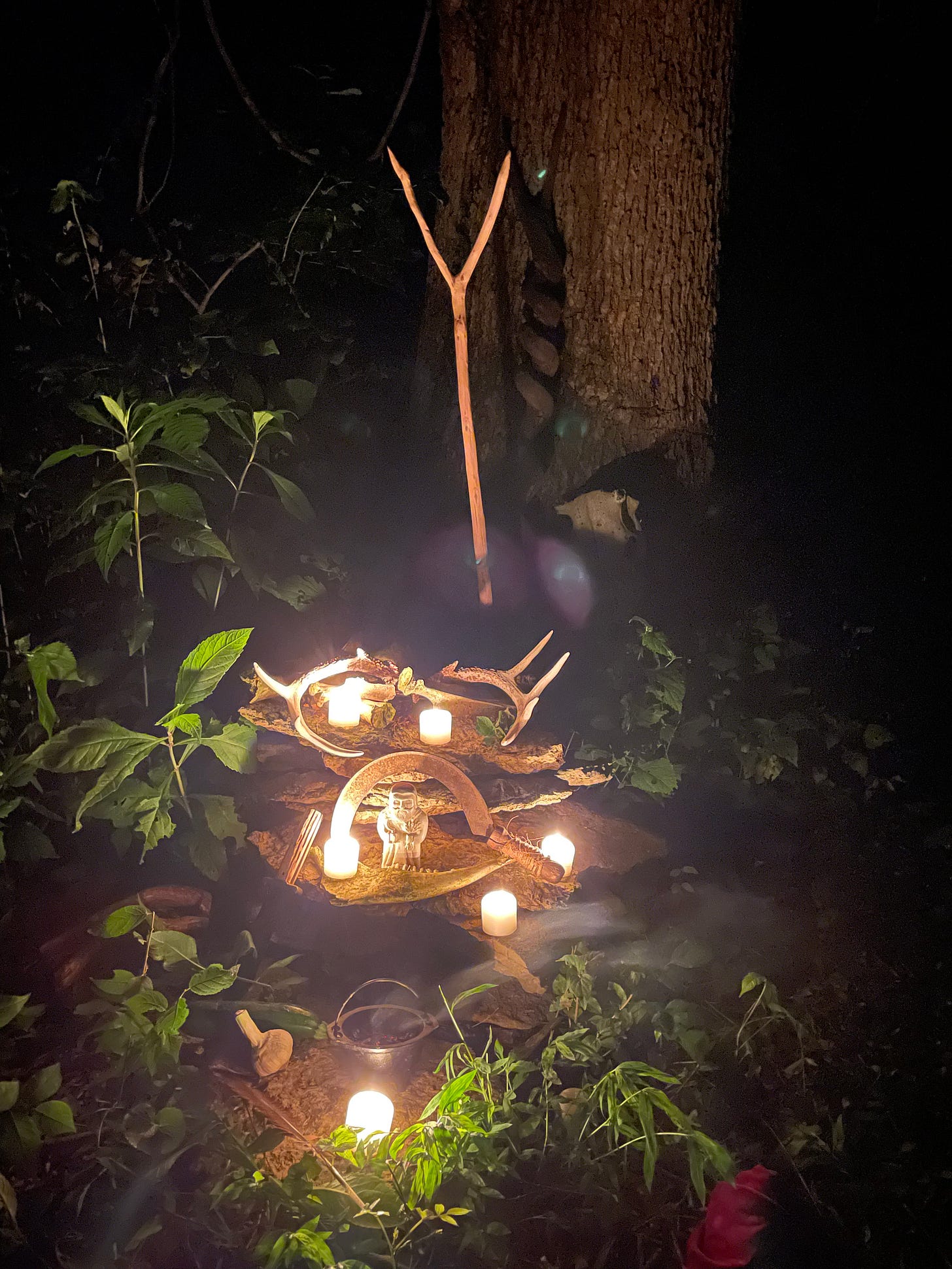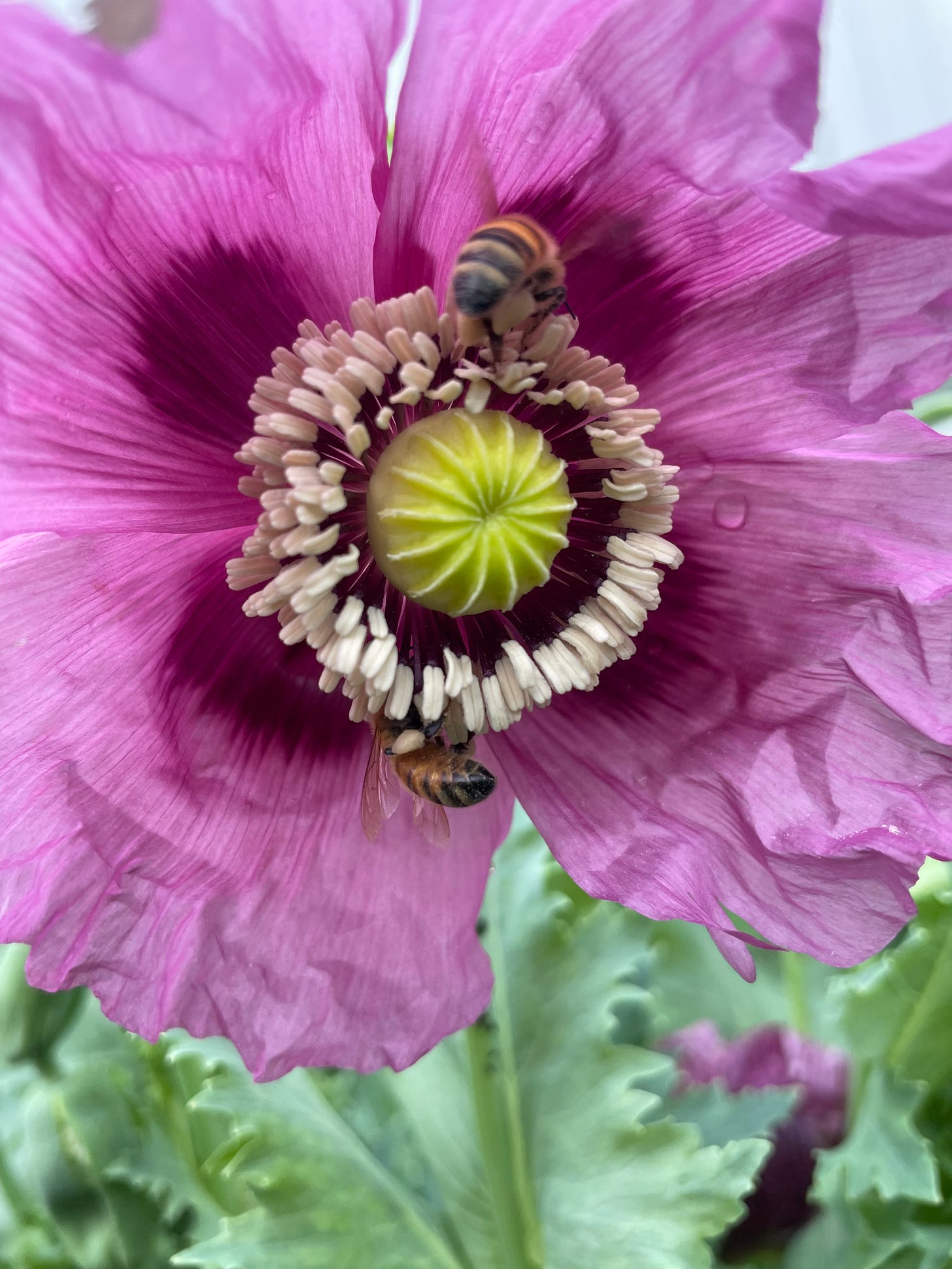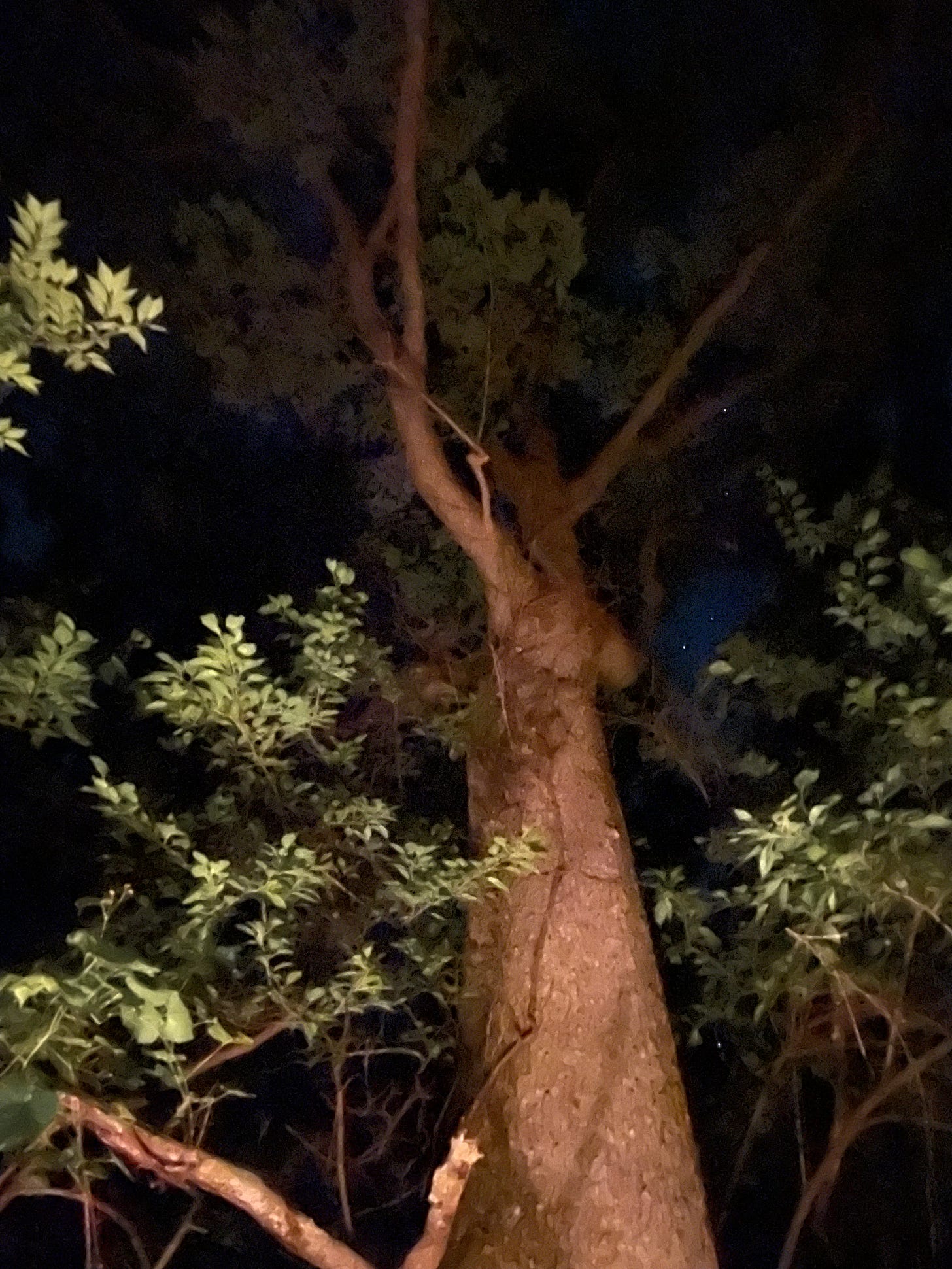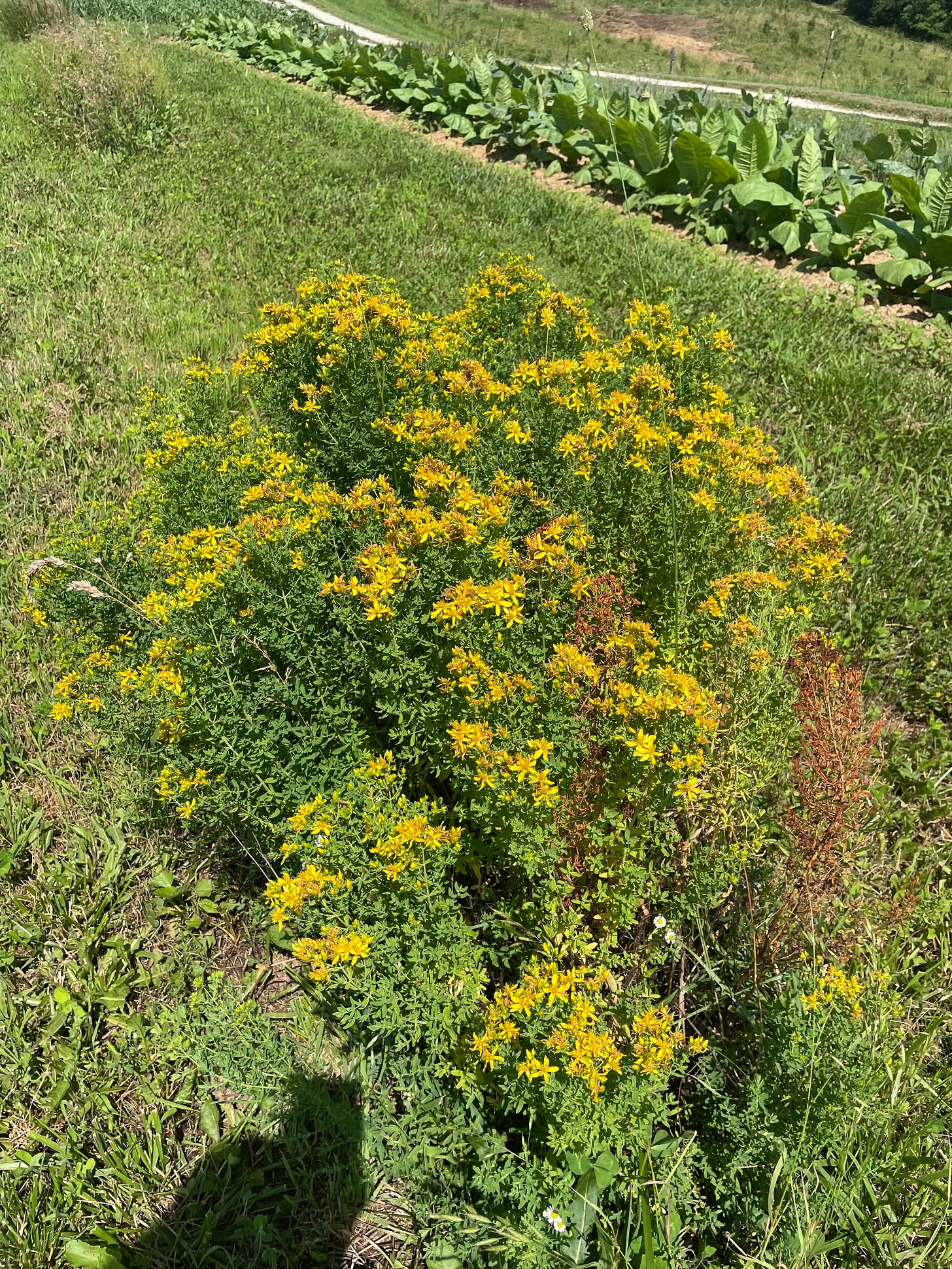Over the last 25 years of my farming career it has gradually become apparent to me that not only is farming my vocation, but that as a consequence, interacting with the land and the greater than human powers of the Earth and Sky, forest and field, has also become a major focus of my spiritual life. Constantly being at the mercy of the powers of nature has made me uniquely aware of my utter dependence on them. We all are dependent on those same forces, but many in the modern world think they have the luxury of ignoring nature and its powers. However, surrounded as I am, in my professional capacity, by the beauty of the natural world, its abundance, its scarcities, and its random changes of mood, I am frequently moved to prayer and ritual in order to help me cope with the emotions that arise from seeing my agricultural aspirations either successful or cruelly thwarted. Indeed, for better or worse, it often seems like my consciousness is strangely in sympathy with what is happening on the farm, with my crops and livestock. That the natural world is the product of intelligence and possessed of sentience and wisdom is, to me, without a doubt. The fact that the intelligence which animates the natural world is also not human and is alien to human concerns is also glaringly apparent.
I have been through various stages on this spiritual journey throughout my life, in the constant search of a context for my seeking. I have studied and researched many of the world’s spiritual traditions in my search for a meaningful framework for my particular path. I have come to the conclusion that no single current tradition or world religion is a good fit for me and further that the challenges of reconstructing one of the great paganisms of the past, however inspiring and fulfilling that task may be for some, is probably also not right for me. The myths and practices that speak to me come from all over the world, as well as from the promptings of my inner experiences, and I believe, my relationship with the powers of the land.
I believe that in this search for a context that unifies my spiritual yearnings and my work with the land, its seasonal cycles, and the plants and animals upon which my livelihood depends, I am not alone. Many others are seeking a way to reintegrate and re-enchant our relationship with both the divine realm and the natural world. My vision for this context is a re-paganization of our current understanding of our place in the natural world and the cosmos as a whole. I use the word “pagan” here with reservations, because it is a word loaded with negative associations, but I think it gets a bit closer to the meaning that I’m looking for than the alternative, literally meaning as it does, “country dweller”. I believe that what is necessary for spiritual reform, if at this late date such a thing is even possible, is to return the locus of spiritual value to the Earth and the natural world, and to return humanity to its humble place as one creature among many, rather than being the pinnacle of creation.
In the last few years it has become glaringly apparent that our civilization stands at a turning point, perhaps even the point of collapse. The old structures which gave stability and meaning to life have undergone a steady erosion of power and credibility. The religious systems that have undergirded our intellectual and civil life here in the US have revealed themselves to be little more than cynical and hypocritical myths that serve to justify and preserve the continued dominance of vested political and class interests. They no longer feed the soul, and merely serve to convince the ruling class and those that support them that they alone deserve to rule. These religious institutions, rather than seeing the Earth as a divine entity, the great ancient mother of all of us, see it as a battleground where the forces of good and evil, as defined by them, fight for dominance. If in the process, as seems increasingly likely, they destroy the natural systems upon which we all depend, then their adherents believe God will give them a new Heaven and a new Earth in place of the one they have despoiled. It hasn’t occurred to them in 2,000 years of developing that doctrine, that nothing like that actually happens in history or nature. The gods don’t intervene in history or nature from without, coming from the clouds in glory, as Christian scripture puts it, but from within as agents of change and transformation, according to their own purposes.
And so, at this moment in history, when our Earth is groaning from the consequences of our species’ destruction and despoilation of the soil, the water, the air, the animal and plant life, as well as the war of the wealthy and powerful against the humble people of the world, I propose that we turn now and reclaim and rekindle our human bond with the sacred Earth and the holy Sky, and all of the animate powers of nature in between. Rather than a public movement, a religious ideology, or an organization, all of which are prone to institutional corruption and to all-too-human power struggles and vanity, I suggest that we begin a private movement consisting of a humble turning of our hearts and souls to the divine in nature, as well as to honoring the divine spark inherent in our own human spirit. We are all children of Earth and Sky, we are all formed of the substance of the body of the goddess, we breathe the same air, drink the same water, we are all related to everything that lives. The same primal spirit that gives us life gives life to all that lives. It is a miracle to be alive and to participate in the divine life of nature. We modern humans, surrounded by our miraculous technology and clever gadgetry, seem to have forgotten that as creative as we are, everything we create is but a paltry imitation of the divine creativity of nature.
Much of my life I have been interested in agrarian folkways, in the ways traditional people have conceived their relationship with the natural world, in the festivals and rites, as well as the everyday magic which people used to remain in good relation to the animate powers of nature however they conceived them. James Frazer, the pioneering, but problematic to modern sensibilities, anthropologist whose career straddled the 19th and 20th century, compiled numerous examples of what he saw to be survivals of ancient Paganism in the quaint rural rites of European peasants. The founder of the modern Neopagan religion known as Wicca, Gerald Gardner, likewise claimed to be the inheritor of an ancient and unbroken tradition of Pagan religion passed down in secret to modern times. Anthropologist and historian Margaret Murray, likewise postulated the survival of an organized pagan cult among the witches of the Middle Ages. This idea of survival of pagan folkways into modern times has largely been debunked by succeeding generations of scholars. To me, however, it doesn’t make much difference if there is an unbroken tradition extending from ancient times down to modern times because the gods are eternal and undying and inspire new seekers in each generation. In every child who wanders in the forest, speaking in his or her imagination with the wondrous and fantastic creatures that he or she may meet there is born a brand new Pagan.
Many of us are born with the desire to forge a relationship with the powers and intelligences animating the natural world. People of my ilk feel more at home in the vastness of the forest or out on the lonely moor, than in the crowded market place or the town square. We shun the urgent noise of the pressing throng of humanity that drowns out the quiet voices of the gods and spirits who whisper into our souls when we sit alone in the woods on a moonlit night. Rather than attempting to conform to the desires and expectations of our increasingly insane and misguided social norms, particularly regarding the choices offered to us as nourishment for our spiritual hunger by the organized religions, I and many others are turning our backs on institutions, and going to the forests and fields to seek authentic contact with the nature spirits and rustic gods that populate the natural world beyond our homes and towns.
Agrarian Paganism:
As mentioned, for many years I have been fascinated by the religious and magical practices of generations of peasants and farmers around the world, the simple and profound rites they performed to establish a positive relationship with the powers that lie behind the physical forces that their livelihoods depend on. As a solitary practitioner, I have drawn inspiration from the ethos of those peasant magicians or cunning farmers and have emulated some of their methods and approaches, where applicable and in harmony with my ethics. Many of the religious practices of our forebears were rather barbarous, unethical, or cruel by modern standards and practices which involve cruelty to animals or humans are best left in the past. Following the Neoplatonist philosopher Porphyry, I prefer to make vegetarian offerings of food and drink, flowers, herbs, prayers, and poetry, to show my devotion to the gods and spirits.
As both a Pagan and a magical practitioner, the gods that I am inspired by and the magical practices that I do are not only the ones concerned with esoteric knowledge, I am also drawn to those practices and entities which directly impact my life both as a farmer and as a family man. The pagans of the ancient world were not just interested in lofty philosophy and abstruse theurgical rites, they were also interested in pragmatic agrarian and familial concerns. The ancient Greeks, for example, were a largely rural society and the famous gods of that ancient pantheon had agricultural aspects that addressed the concerns of the farmers who fed the population. For example: they prayed to Zeus for rain, Hermes was the god not only of communication and thieves, but the patron of shepherds; Hekate, famed as the goddess of magic and witchcraft was also the goddess of cow herders and fishermen, who increased the herds and flocks of the former and the haul of the latter. Of course, Demeter and Persephone, were the patronesses of the grain harvest and Dionysus was the god, according to Frazer, not just of vines and wines, but of fruit culture in general. Chronos, the king of the Golden Age, was originally an agricultural god, and Pan, likewise also the god of shepherds. There were also many other minor gods such as the various nymphs, satyrs, and dryads, who also had to be appeased so that agricultural operations would proceed without difficulty. So, in these few examples from a well documented culture from the past, we can see that agrarian concerns were at the forefront of religious life. In the case of the mysteries of Demeter and Persephone that were observed at Eleusis for millennia, an agrarian cult became one of the most profound religious traditions of the ancient world.
There are many takes on natural agriculture; organic, Biodynamic, regenerative, sustainable, local. None of them, with the exception of the Biodynamic movement, based as it is on the work and thought of Austrian esotericist Rudolf Steiner, has a spiritual component. The agriculturalists of traditional societies blended their spiritual lives and their agricultural methods seamlessly. It has been stated, by Mircea Eliade, that there was no dichotomy between the sacred and the profane in those pre-modern societies. This is something that I would like to see brought back to agriculture: the idea that every act we perform on the land is an act with spiritual consequences and one for which we need the support of the gods and spirits of the land and nature as a whole.
As farmers and gardeners we can begin by observing the turnings of the seasons by consciously marking and observing with simple ceremony the movements of the wheel of the year. For example, as I write these words, a few short days after the Summer Solstice, when the Sun is at its northernmost point, the increase in solar intensity is very noticeable. The Divine Sun is at his seasonal peak, pouring forth his burning heat upon the world below. The plants respond by setting fruit and ripening and the farmers all around us are busy with the endless task of making hay, as the golden brown of ripening grass replaces the vibrant green of spring. Marking the peak of the season of light and the slow turning toward darkness with a few words addressed to the powers of nature, however one conceives them, helps to tune the mind and spirit. I realize that as a farmer, I am a member of an ever dwindling segment of society, and that as a Pagan farmer in rural America, I am even more of a quixotic oddball, but my intuition is that this message will resonate with many readers who do seek to have a closer and more meaningful relationship with both the divine and with nature.
Note to the reader: For the moment I am inspired by the concept of Agrarian Paganism and may do a whole series of posts, perhaps with the intent of eventually making a companion volume to The Cunning Farmer: Agrarian Magic, Mythology and Folklore. Speaking of…. If you like this kind of material and would like to read more, please pre-order a copy of the book by following this link.. Also like, share, re-stack, and comment below because the algorithmic gods enjoy an offering as well. Also, please let me know if this type of material is exciting to you so I can prioritize research into these types of topics.









It’s been both a bitter and liberating experience to realize the old certainties are not going to save us. There are certainly treasures from the past that we can carry forward, but no one else can walk our path for us.
Agrarian Paganism seems to be a good match with regenerative agriculture - or would they be unrelated endeavors?